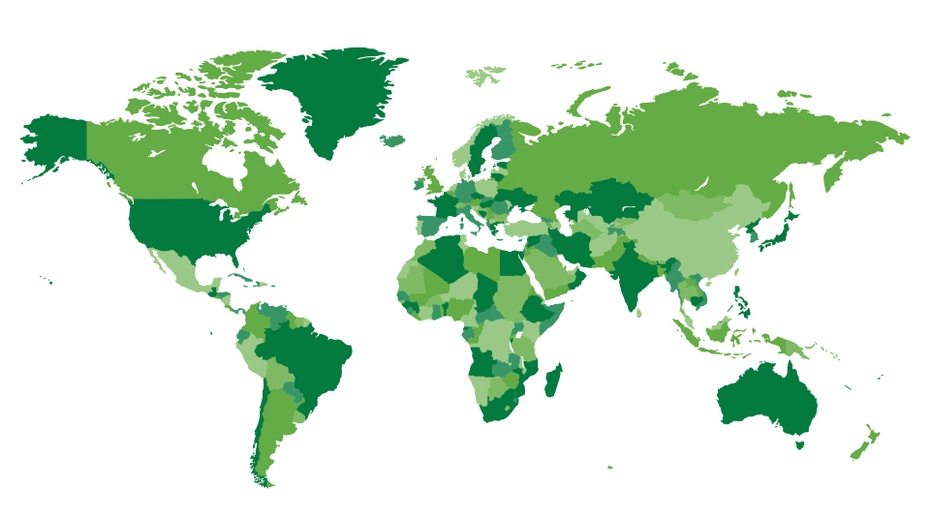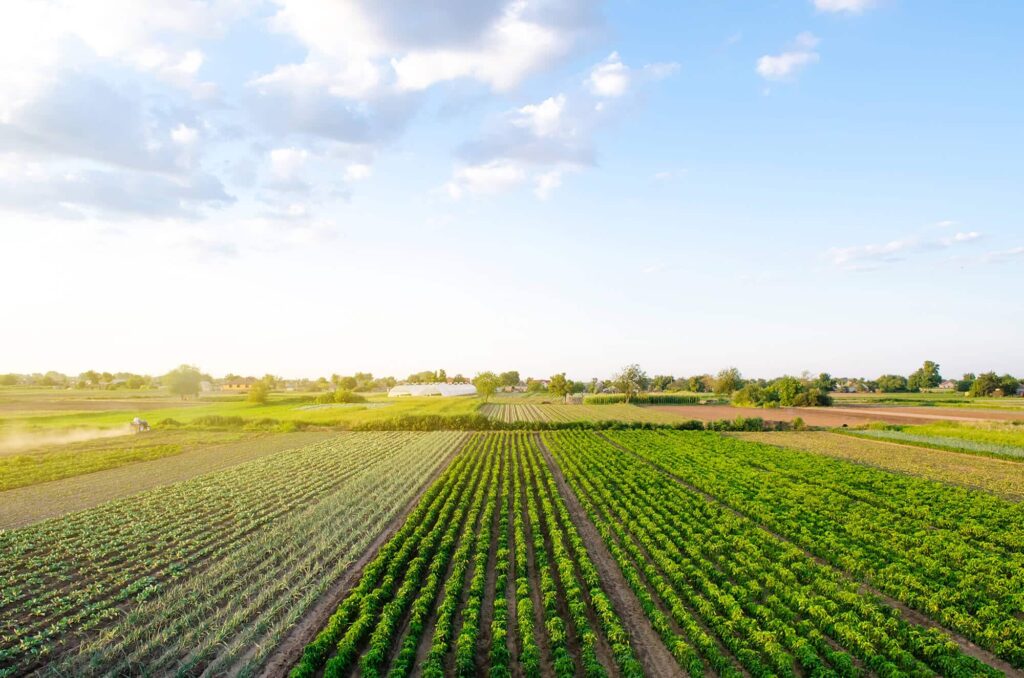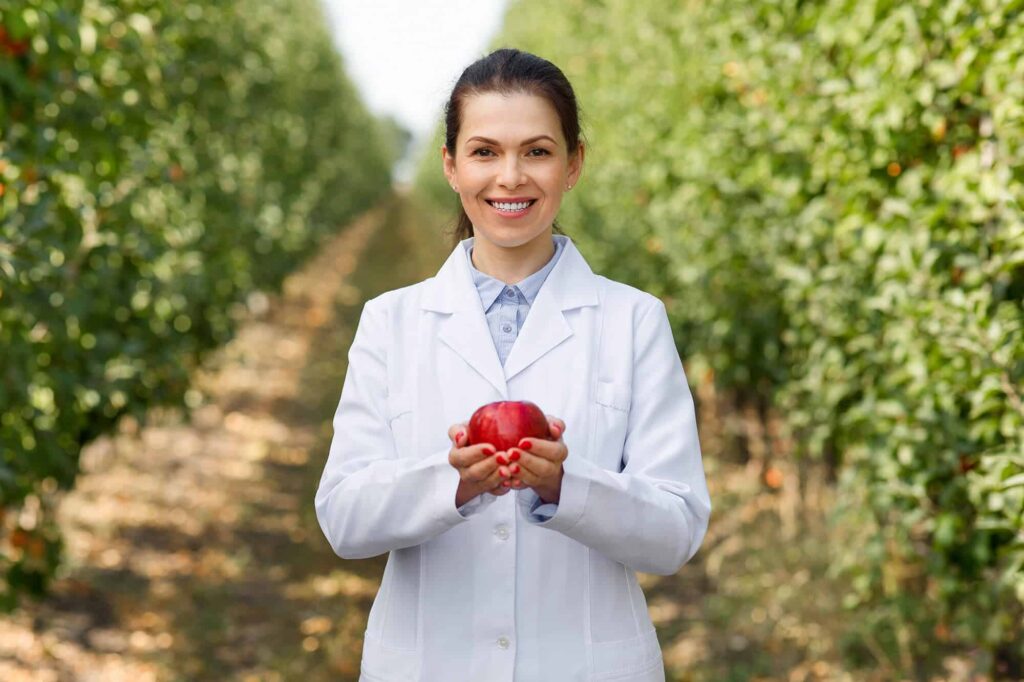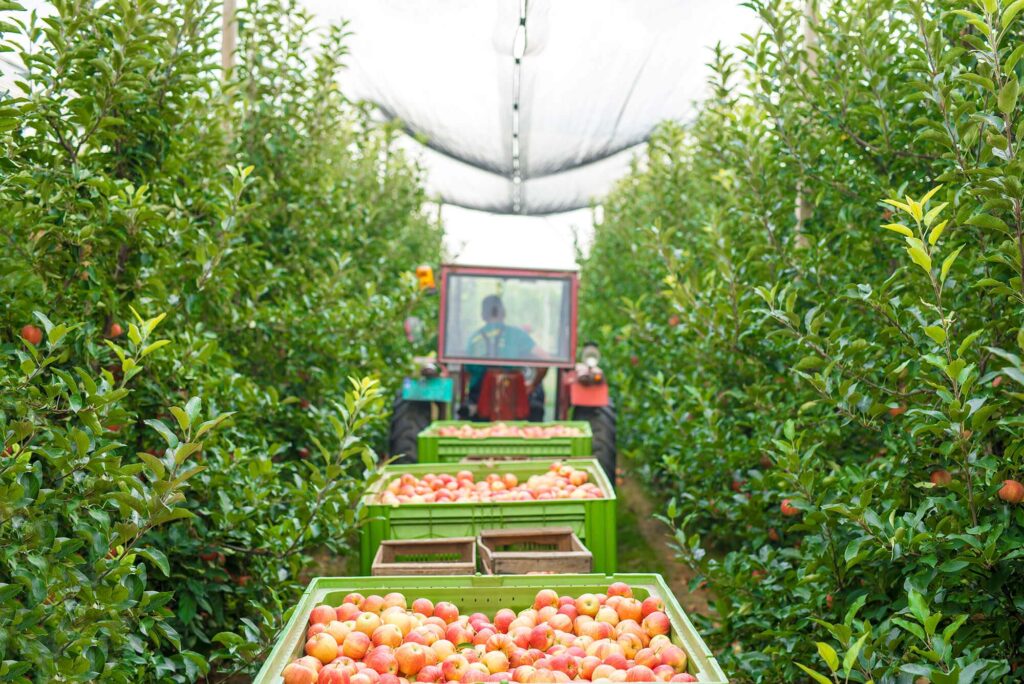Core advantage
Advanced research and development strength We have a research and development team composed of senior scientists, engineers and technical experts, who have deep expertise and rich practical experience in the fields of biotechnology, plant nutrition, microbiology and other fields. Through continuous technological innovation and optimization, we have successfully developed a series of efficient and environmentally friendly biostimulant raw materials, which provide strong support for agricultural production.

Farmers can continue to rely on us to innovate and deliver new active ingredients, innovative formulations, and traits to get more value from their production, both economically and environmentally.
Pipeline of innovations supporting major crops worldwide
We focus on improving outcomes in major crops, like wheat, canola, soybean, corn, cotton, rice, as well as fruits and vegetables which account for more than 50% of the world’s farmland, according to estimates from the Food and Agriculture Organization of the United Nations (FAO). Within these major crops, we continue to innovate across our pipeline of seeds and traits, seed treatment, biological and chemical crop protection, as well as digital farming solutions and will launch major pipeline projects across all business areas by 2032.

This is the heading

This is the heading

This is the heading

This is the heading
Advanced research and development strength
We have a research and development team composed of senior scientists, engineers and technical experts, who have deep expertise and rich practical experience in the fields of biotechnology, plant nutrition, microbiology and other fields. Through continuous technological innovation and optimization, we have successfully developed a series of efficient and environmentally friendly biostimulant raw materials, which provide strong support for agricultural production.


Core technology
NAS-C is a novel material with significant plant biological activity produced by our company using proprietary biotechnology. It consists of nanocarbon particles with a diameter ranging from 10 to 100 nanometers in a colloidal state. The solution mainly contains over 40 organic acids, including carboxylic acids, acid anhydrides, aromatic carboxylic acids, and aromatic carboxylic acid anhydrides. The presence of multiple organic acids in the NAS-C solution results in a large number of active functional groups, which positively stimulate the natural processes of plants or their root systems by acting on the plants themselves or their root systems through various mechanisms. This includes enhancing or benefiting the plant's physiological functions, nutrient uptake, resistance to non-biotic stress, and improvement of crop quality. Meanwhile, the colloidal state of the nanocarbon particles also has good ion adsorption properties, which can improve the efficiency of nutrient uptake by crops and promote their growth and development.
Strict quality control
We know the importance of product quality, so we have established a sound quality management system. From the collection and processing of raw materials to the production, packaging and transportation of products, every link strictly follows international standards and industry norms to ensure product quality and safety.


Comprehensive service support
We focus on communication and cooperation with customers and provide a full range of service support. Whether it is technical consultation, product customization or after-sales service, we are oriented to customer needs and provide timely and professional solutions to ensure that customers can make full use of our products to achieve the best production benefits.
How do we aim to achieve economic, environmental and social value creation?
We focus on improving outcomes in major crops, like wheat, canola, soybean, corn, cotton, rice, as well as fruits and vegetables which account for more than 50% of the world’s farmland, according to estimates from the Food and Agriculture Organization of the United Nations (FAO). Within these major crops, we continue to innovate across our pipeline of seeds and traits, seed treatment, biological and chemical crop protection, as well as digital farming solutions and will launch major pipeline projects across all business areas by 2032.

Global strength harnessed for regional impact
Seeds & Traits by BASF is meeting the agronomic needs of growers around the world through advanced germplasms and trait-technologies that are improving yields in countries like Canada, Europe, Brazil, the Philippines, the USA, and more.

Award-winning podcast series ‘The science behind your salad’
The podcast series puts a spotlight on the innovation, technology, digital and sustainability for healthy food made by BASF in Agriculture.
Supporting agricultural transformation through innovation
For us, sustainability means contributing to society’s fundamental needs and helping farmers to be successful in times of climate change, linked to societal and economic challenges. Doing so also secures our long-term profitable growth and renews societal acceptance.
We support sustainable agricultural transformation through our innovation. By combining innovative thinking and practical action, by embedding sustainability even more deeply into the fabric of our business, from R&D to manufacturing, as a state of mind, we create business opportunities that demonstrate our commitment to the future of our planet.
How do we aim to achieve economic, environmental and social value creation?
We focus on improving outcomes in major crops, like wheat, canola, soybean, corn, cotton, rice, as well as fruits and vegetables which account for more than 50% of the world’s farmland, according to estimates from the Food and Agriculture Organization of the United Nations (FAO). Within these major crops, we continue to innovate across our pipeline of seeds and traits, seed treatment, biological and chemical crop protection, as well as digital farming solutions and will launch major pipeline projects across all business areas by 2032.


Agriculture through technology






John Doe
Designation